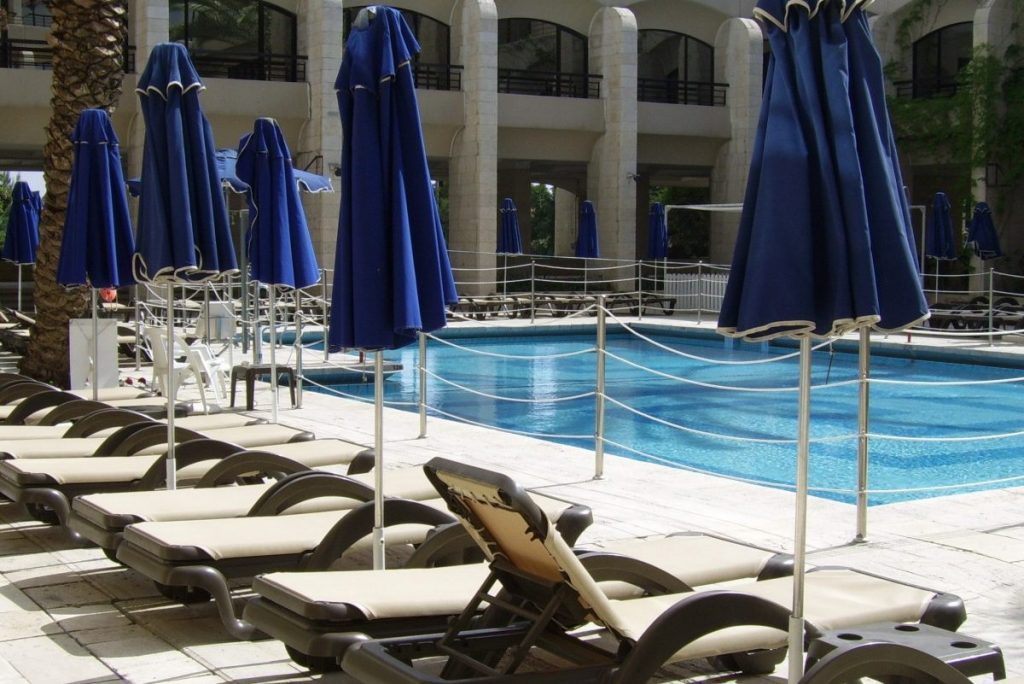Skift Take
Hotel owners have to boost wages above pre-pandemic trend lines if they want to claw former workers back from outside industries. Until that happens, expect a lot of overworked and overwhelmed staffers doing well above the requirements of a typical hotel job.
One month after shining as a rare bit of optimism in an otherwise disappointing jobs report, the U.S. hotel sector slowed down its pace in hiring much-needed workers before what many anticipate will be one of the busiest seasons for travel on record.
The U.S. hotel sector added 35,000 jobs in May, which was weaker growth than the 54,000 jobs added one month prior, the U.S. Bureau of Labor Statistics reported Friday. This isn’t what the hotel sector needed, as economists last month told Skift the industry needed to maintain April’s job growth momentum — at the very least — to be able to better handle the surge of summer travelers.
Last month’s job growth slowdown is a fresh reminder hotel owners and operators must get more competitive in recruiting workers.
“There are definitely some major issues that the industry is facing right now,” said Patrick Scholes, a managing director of lodging and experiential leisure equity research at Truist Securities. “They have some tough decisions to make around how they treat their employees and what they pay them.”
The overall U.S. economy added 559,000 jobs last month, bringing the national unemployment rate down to 5.8 percent. But the weaker hotel job growth sent the hotel unemployment rate up to 16.1 percent, a significant increase from April’s 13.8 percent.
“This lukewarm jobs report clearly illustrates the ongoing and significant economic harm the pandemic has caused in the lodging sector,” Brian Crawford, executive vice president of government affairs at the American Hotel & Lodging Association, said in a statement to Skift.
Wage Constraints
Hotel owners across the U.S., especially in leisure destinations, reported in recent months major difficulties in hiring workers for the summer season. Many economists and analysts chalk up the tough recruiting environment to former hotel workers finding new jobs and better wages in other industries after getting laid off or furloughed early in the pandemic.
Companies like Hilton actively connected furloughed workers with jobs in grocery stores or retail warehouses for companies like Amazon while hotels were temporarily closed. Moves like that may have long-term impact for hotel labor.
The retail industry has a 17.5 percent, or $2.68 per hour, wage premium for frontline hotel workers, according to a CBRE report from this spring. Higher wages combined with more certainty around an Amazon or grocery store job may keep those former hotel workers in the retail sector.
This isn’t just limited to the hotel sector. The Federal Reserve Bank of Dallas reported last month a general increase since last summer of workers in its district who no longer planned to return to their old job.
“If you join Amazon or whatnot, you’re probably not going to get laid off once the summer is over,” Scholes said. “Whereas, you have a bit of a leisure demand bubble for the summer. I think that’s a concern: Once summer is over, are these workers going to be laid off again?”
More than half the jobs added in the U.S. last month came from the overall leisure and hospitality sector, which includes hotels as well as bars and restaurant. This broader category continued to be a job growth leader, with 292,000 jobs added.
The disappointing hotel growth once again raises the question around whether wages need to go up to better compete against outside industries in recruiting workers.
Average hourly wages across all industries last month increased by 2 percent, and leisure and hospitality was a leader for wage growth last month. But even the wage increases merely put the sector back to its pre-pandemic trend line rather than in inflation territory suggesting some massive labor shortage crisis, Heidi Shierholz, director of policy at the Economic Policy Institute, noted on Twitter.
“In leisure and hospitality, earnings have grown enough to suggest a sector-specific shortage, but that may be largely the result of customers — and their tips — returning,” Shierholz tweeted.
Increasing wages could put a financial strain on hotel owners struggling after more than a year of record-low demand. The AHLA appeared to acknowledge this in its renewed call Friday for Congress to pass the $20 billion Save Hotel Jobs Act of targeted relief for the hotel industry.
Take the Win
Even with slower growth from hotels, economists still point to Friday’s job report as a victory for the overall leisure and hospitality sector that is still 15 percent, or 2.5 million jobs, off its February 2020 employment levels.
Any growth is a good sign for the sector most ravaged by pandemic shutdowns and travel restrictions. That goes for the overall job gains, too.
“Half of a million jobs in a normal labor market would be phenomenal news. These days, it’s just sort of making steady progress,” said Nick Bunker, an economics research director for North America at the Indeed Hiring Lab. “It’s not like the labor market is treading water. It’s swimming forward, but it could take some time for us to get to the shore at that pace of progress.”
Have a confidential tip for Skift? Get in touch
Tags: coronavirus, coronavirus recovery, labor
Photo credit: Hotel hiring cooled off ahead of the summer — more a reflection of not enough workers rather than not enough jobs. PxHere
